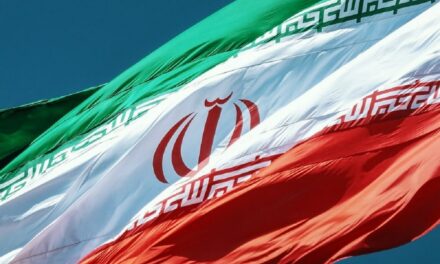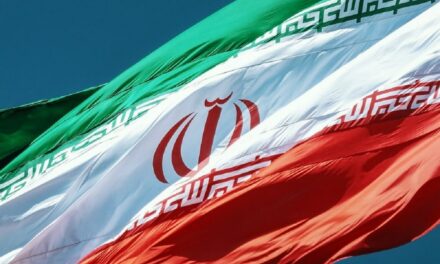We support our Publishers and Content Creators. You can view this story on their website by CLICKING HERE.
On whose side is time—Ukraine’s or Russia’s?
Or, to put the question more pointedly, which country is better equipped to sustain a long war?
The questions are obviously important. If time is on Ukraine’s side, then it should avoid negotiations and drag out the war for as long as possible. If time is on Russia’s side, then it should act the same way.
The Ukraine War and the Issue of Time and Sustainabilty
Answering these questions is harder than may appear at first glance.
For starters, subjective beliefs are important. Believing you can sustain a war may not guarantee that you will, but it surely makes a difference. Morale matters. But objective indices of resilience—such as numbers of soldiers, weapons, and ammunition—also matter, as does even more so their quality. Finally, a variety of domestic and international factors can also affect the ability of countries to sustain war.
It should be clear, even from this short list of things that matter, that there are no easy answers to the questions at the top of this article. Time might have been on the German side in both world wars had not the Americans intervened. Time might not have been on the North’s side had the British supplied the Confederacy with the requisite weaponry. Time might be on Russia’s side if Putin remains firmly in charge, but time might not be on Russia’s side if he continues to make strategic mistakes or dies or is deposed.
The number of possible “intervening variables”—seemingly random bolts out of the blue that can knock a trajectory off its intended course—is enormous, and as much as we may imagine that they don’t exist, they refuse to go away.
So, how can we tell? The short answer is that we can’t—not conclusively. All we can do is be aware of the complexity and hope that our simplifications are roughly on target.
Supporters of the view that time is on Russia’s side usually point to the following factors. Its armed forces, population, and economy are bigger than Ukraine’s and will, therefore, settle the issue in the long run. Critics of that view concede the obvious point that Russia is larger than Ukraine in virtually every respect, but then shift the focus to greater Ukrainian morale, significantly fewer casualties, and the continued support of the West.
To which the first group replies by saying that morale is ephemeral, Western support is not guaranteed, and Putin is happy to destroy as many of his soldiers as it takes. Unsurprisingly, the second group’s rebuttal claims that Ukrainian morale will not dissipate in the face of an existential threat, that the West’s support need only extend for a few more years for Russia to lose, and that, Putin notwithstanding, the Russians won’t tolerate losing close to a million young men and women in a few years.
And we’re back to where we started from.
One possible way of resolving the deadlock is to look at both sides’ willingness to engage in immediate negotiations, on the rationale that the more willing you are to end the war today, the more likely are you to believe that you might lose it tomorrow.
Seen in this light, Putin’s continual declarations that he wants to negotiate now suggest that he fears the future. Of course, that would only be true if he were genuinely willing to seek some sort of compromise, whereas in reality his demands amount to Ukraine’s capitulation and self-destruction. On the other hand, Ukraine’s unwillingness to talk with the Kremlin appears to bespeak confidence in the long term, were it not for the fact that Ukraine’s unwillingness may simply be due to its knowing that there’s nothing to talk about with Putin.
But matters are not hopeless. We do know that the long run consists of short and medium runs. We also know that losing in the short or medium term is no way to win in the long term. A short-term victory may not guarantee long-term victory, but it’s better than a short-term defeat. Which means that all these combinations and permutations are ultimately a distraction from the only question that truly matters: does the West want Ukraine or Russia to win? The West is larger, richer, and stronger than Russia. If it supports the resilient Ukrainians more or less unconditionally, Ukraine will win in the short, medium, and long terms. If the West fails to support Ukraine, Russia will win in the short, medium, and long terms.
Ukraine knows this, as does Russia. The choice before the West is thus simple but stark: does it want Ukraine to exist or does it want Ukraine to be destroyed? Ukrainians have naturally opted for the first choice; Russians for the second. The West can ignore Scholastic disquisitions of long runs and tip the balance in either direction.
The life or death of Ukraine is in its tremulous hands.
About the Author: Dr. Alexander Motyl
Dr. Alexander Motyl is a professor of political science at Rutgers-Newark. A specialist on Ukraine, Russia, and the USSR, and on nationalism, revolutions, empires, and theory, he is the author of 10 books of nonfiction, including Pidsumky imperii (2009); Puti imperii (2004); Imperial Ends: The Decay, Collapse, and Revival of Empires (2001); Revolutions, Nations, Empires: Conceptual Limits and Theoretical Possibilities (1999); Dilemmas of Independence: Ukraine after Totalitarianism (1993); and The Turn to the Right: The Ideological Origins and Development of Ukrainian Nationalism, 1919–1929 (1980); the editor of 15 volumes, including The Encyclopedia of Nationalism (2000) and The Holodomor Reader (2012); and a contributor of dozens of articles to academic and policy journals, newspaper op-ed pages, and magazines. He also has a weekly blog, “Ukraine’s Orange Blues.”

 Conservative
Conservative  Search
Search Trending
Trending Current News
Current News 





